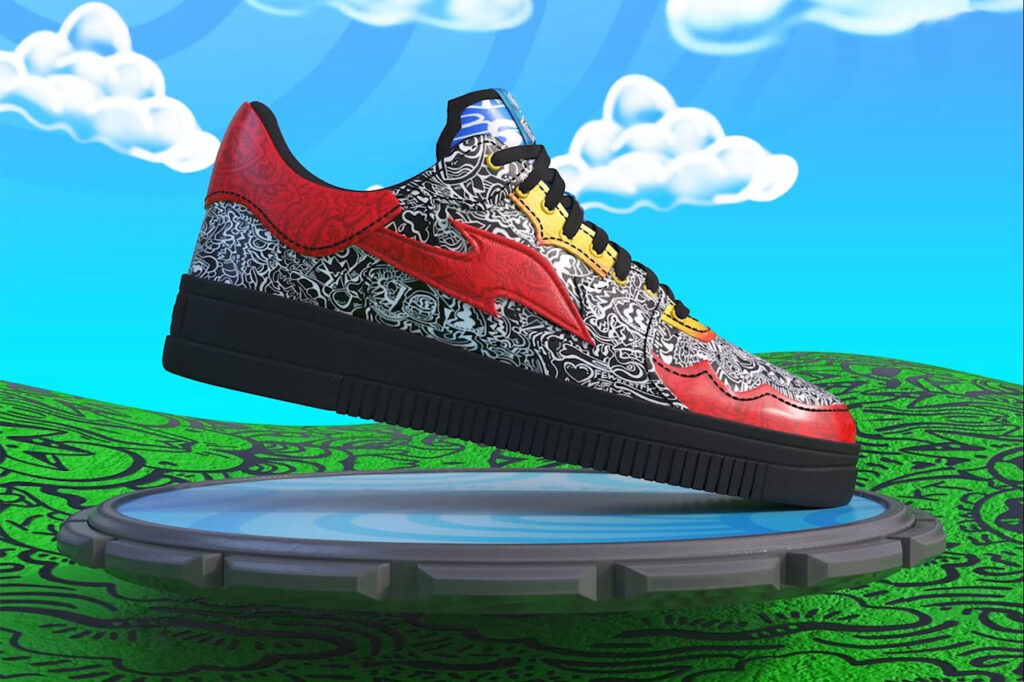As the initial, explosive hype over NFTs begins to quiet down, it might feel tempting for those on the sidelines to reduce the art world’s crypto obsession to a cultural curio or flash-in-the-pan. After all, we’re talking about objects, right? If there’s no physical component, what’s the point?
According to experts in the fields of gaming, luxury, and blockchain, however, this sort of attitude is not just limiting, but short-sighted, and ultimately, out of step. The popularity of NFTs represents not just an economic shift, but a total sea change in the way consumers and brands can conceptualize the future of trade, ownership, and collective desire.
Jing Daily’s latest webinar, “Luxury’s NFT Obsession: Determining Legality & Longevity,” focused on futurity in the digital marketplace, drawing exciting and thoughtful connections between branding, sustainability, and digital competence. Moderated by Editor-in-Chief of Jing Daily, Enrique Menendez, the panel featured Julie Zerbo, Founder and Editor-in-Chief of The Fashion Law, Benoit Pagotto, Co-Founder of virtual luxury brand RTFKT, tech investor and gaming expert Kelly Vero, and noted pseudonymous NFT collector Whale Shark in conversation.
Here were the webinar’s three biggest takeaways.
A phygital experience

John Gerrard’s “Western Flag,” 2017, billed as the first “superneutral” NFT in the marketplace. Image: © John Gerrard, courtesy Pace Gallery
All panel members were deeply invested in blurring the boundaries between the physical and the digital, as the binary no longer reflects the wants, needs, and interests of the average luxury consumer. “It is both tangible and intangible,” Vero remarked of NFTs.
This conversation also applied to long-form sustainability. Whale Shark clarified that while a “discerning eye” would be necessary to suss out trend from valuable digital production moving forward; a sector move from “proof of work to proof of stake” will help the industry create a “very eco-friendly system in the next two years.” “I’d rather make waves than waste,” quipped Vero, adding, “What’s really exciting to think about in the phygital is how much waste you can avoid making in the creation, not just in the making of an NFT; there’s no reason not to reuse wireframes and skin them, for instance. We can be wasteful in NFTs and really shouldn’t be, since physical luxury can be so wasteful”.
Collecting, with emotion

Digital artist Fewocious’ recent drop of RTFKT’s virtual sneakers raked in $3.1 million in seven minutes. Image: RTFKT
The panel conceded that many luxury brands aren’t yet making emotional connections between digital consumption patterns and marketing opportunities. Pagotto was adamant about the experiential aspect of collecting: “I encourage anyone to buy their first NFT, and see how you understand this suddenly belongs to you. It starts to get addictive; you need to buy your first one to understand.”
Vero felt that the gaming industry set a precedent in this realm. “Emotion is the key,” she maintained. “The mistake NFT developers are making right now is thinking, ‘Is this something that we’re buying for a fad?’ Because in the physical, I couldn’t wear a Chanel jacket, but in the digital, I could rock the hell of out it. It’s an incredible opportunity.” Pagatto drove the point home: “Brands see the micro-transactions and that there’s money to be made, but they need to look at the cultural context.”
Thinking longevity and legality
Whale Shark noted that one of the greatest assets NFTs have to offer the luxury sector is their embedded provenance and copyright features. Authenticity is a premium in both hard and soft luxury acquisitions, and blockchain ledgers take the guesswork and risk out of value assessment. “Proof of provenance is a democratized method for saying ‘this is not real’,” he said. Vero agreed: “Smart contracting is one of the most important parts of the entire transaction. It adds so much value and you can ensure longevity in the brand.”
Zerbo also shared the legal angle. “It’s not that different from buying a painting. You’re not amassing the copyright rights, and a lot of these terms are ideally being written into NFT deals so there isn’t a ton of uncertainty, particularly when the prices are high.” Vero put it best: “I want the F in NFT to stand for ‘functionality,” she said, echoed by Pagatto’s take, “The key word in the space is utility.”



